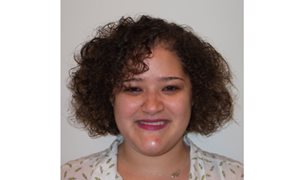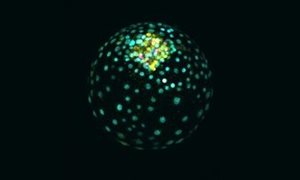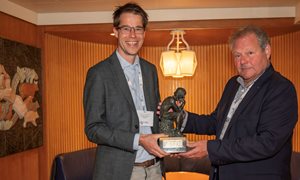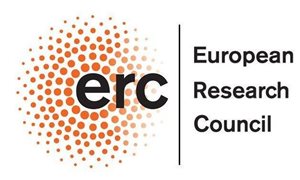 I’m Glenn van Wigcheren, a Dutch (Friesian :-) ) PhD candidate at the Dept. of Tumor Immunology within the theme Cancer development and immune defense.
I’m Glenn van Wigcheren, a Dutch (Friesian :-) ) PhD candidate at the Dept. of Tumor Immunology within the theme Cancer development and immune defense.
When you were a kid what did you want to be when you grew up? Can you tell us something about your child years.
Growing up in a rural area was great and comfortable but I’ve always aspired for more. I loved to learn about everything and always wanted to become a medical doctor. Later I realized that science is more exciting!
What was your previous academic training, where did you study and why that study?
I studied Biomedical Sciences in Nijmegen where I became fascinated by the immune system. Therefore, I moved to Utrecht to study Infection & Immunity and later to Amsterdam to dive into oncology and tumor immunology.
The RIMLS motto is: ‘Today’s molecules for tomorrow’s medicine’. What does this mean for you?
To investigate how tumor cells negatively affect immune cells on a molecular level to be circumvented for the benefit of future cancer immunotherapy.
Who is your great example as scientists? And please give a motivation why.
I’ve never had a great example but I can definitely relate to Charles Darwin’s “thinking path”. Currently, I’m inspired by my mentor Sander (see below).
Which research discovery that you have made has made you most proud?
I’ve had the opportunity to study how a S. Aureus toxin targets the immune system of horses. In the process I discovered its molecular receptors and that human cells are also susceptible!
Given unlimited finance what experiment would you perform?
I would try to establish a large database containing all available information regarding immune cells in human tumors. This database could be used to computationally model tumor-induced immunesuppression critical for mechanistic studies as well as therapeutic predictions!
What does your working area (desk, office) look like and what does it say about you (or your research)?
My desk is organized in a couple stacks of paper (literature, protocols, plans) per topic and there’s a string of post-it notes with instructions or ideas. I think I like to keep subjects separated and efficiently keep track of what I’ve did or thought per topic.
Nominate a colleague to be in the spotlight and what would you like to ask him or her?
Sander Leeuwenburg, how did you managed to simultaneously finish a PhD and your studies at the music academy? What were the (dis)advantages of doing it that way?
What type of person are you, quick insights:
a) Mac or PC? : PCb) Theater or cinema? : Better yet a concert!
c) Dine out or dine in? : Home-cooked meals
d) Ferrari or Fiat? : Ferrari
e) Shopaholic or chocoholic? : White chocolate
f) Culture or Nature : Nature
Related news items

T cell immunity is directed by tetraspanin CD53
5 July 2022 T cells are immune cells that are key for the defense against pathogens and cancer. T cells depend on the membrane protein CD45 to initiate T cell receptor signaling, but how CD45 is controlled at the molecular level is poorly understood. go to page
A single protein complex balances the very first lineage decision of cells in human: towards foetus or placenta
21 June 2022 The international group of researchers spearheaded by Dick Zijlmans and Hendrik Marks together with colleagues from KU Leuven, examined which proteins are associated with the chromatin and how this affects gene transcription. go to page
Dutch Society of Clinical Chemistry Science & Innovation Award for the team of Hans Jacobs
14 June 2022 The team of Hans Jacobs pioneers on the development of personalized diagnostics to measure minimal residual disease in patients with multiple myeloma. go to page
European grants for groundbreaking Radboudumc research Professors Roshan Cools and Peter Friedl receive ERC Advanced Grant
26 April 2022The European Research Council (ERC) is awarding grants to Roshan Cools and Peter Friedl, both professors at Radboudumc. While Cools will investigate how brains control behaviour in (stressful) situations, Friedl will work on developing a new cancer therapy.
go to page
Saponin-based adjuvant-induced dendritic cell cross-presentation is dependent on PERK activation published in Cellular and Molecular Life Sciences
20 April 2022 Lisa Huis in ‘t Veld, Nataschja Ho and colleagues from the team of Gosse Adema published in Cellular and Molecular Life Sciences that Saponin-based adjuvant-induced dendritic cell cross-presentation is dependent on PERK activation. go to page
Rubicon grants awarded to three RIMLS researchers
19 April 2022Three researchers have received Rubicon funding from NWO/ZonMw. This will enable Elke Muntjewerff, Laura de Vries and Laurens van de Wiel to do research at a foreign research institute for the next two years.
go to page